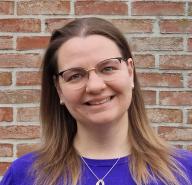 \
&
Contact us
\
&
Contact us
 \
&
Contact us
\
&
Contact us
The Digital Europe programme (DIGITAL) aims to support the digital transition in the EU by fostering the uptake of digital technologies by businesses, citizens and public administration and enhancing digital skills of the workforce. DIGITAL is structured around different special objectives.

marie.timmermann@fwo.be
+32 2 550 15 59
Find the contact info on the site of WEWIS
The National Contact Points (NCPs) provide support, guidance, and practical information to potential applicants, helping them navigate funding opportunities and application processes.
The Programme Committee (PC) members represent their country in decision-making about the work programmes, evaluate implementation, and provide strategic input on priorities and calls.
Digital, Industry & Space Digital Europe AI Continent Cybersecurity
Flanders is pursuing an active industry and export policy focused on defence innovation. With the Flemish Innovation and Industry Strategy for Security and Defence (VISD) and a new weapon trading decree, the government plans to help local companies market their technologies internationally. The European defence and security market is rapidly expan... read more
Infosheets contain edited content on aspects related to this programme. They are reviewed at least yearly.
Related links are easy pointers towards external information. We curate the list, but are not liable for the destinations.
Documents contain additional information related to this programme, and are similar to related links.
PARSEC, funded under Horizon Europe Cluster 3 Call 'Advanced detection of threats and illicit goods in postal and express courier flows' aims to solve challenges facing eCommerce caused by threats and illicit goods in postal and express courier flows. The Flemish company CBRA Services coordinates the project.